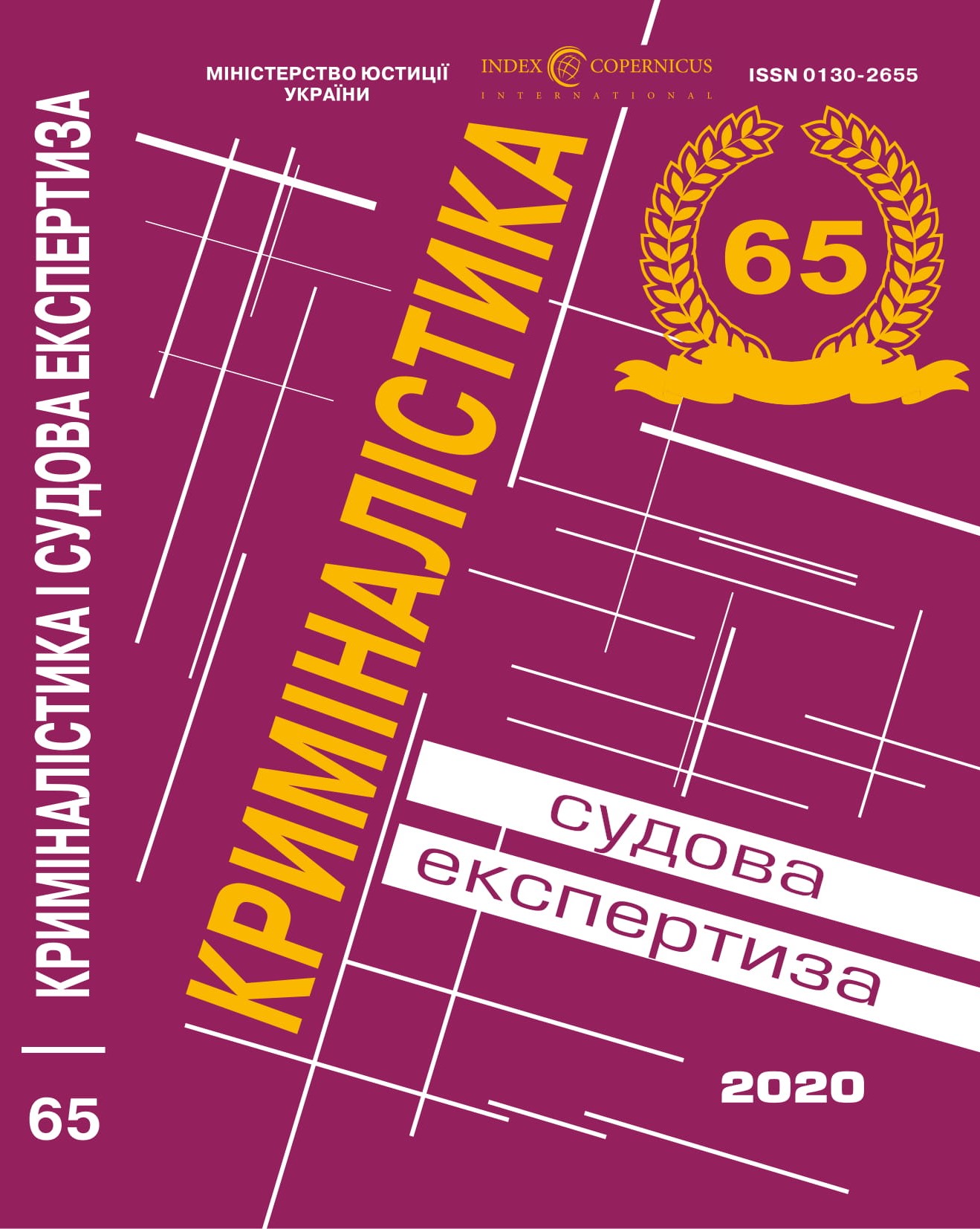
DOI: https://doi.org/10.33994/kndise.2020.65.15
О. Humenskyi
Today, most research objects are complex objects, both from an engineering and technical point of view, and from the point of view of the integrated nature of the results of economic activity.
Currently, an integrated approach to the study of objects of expertise is becoming increasingly relevant, which is interesting both in theoretical and methodological aspects, since it expands the possibilities of expert research, and its results increase the reliability of the evidence obtained [3].
When deciding on the appointment of a comprehensive examination, the investigator, prosecutor, investigator judge, the court shall determine which expert specialties are necessary for its conduct.
The integration task solved with the help of a comprehensive expertise differs from the task of monoexpertise in the following: it is solved only by complexation knowledge of various specialties, its solution lies in the zone of the adjacent field of knowledge. It is at a higher level of generalized knowledge in comparison with the tasks of comprehensive expert specialties [4].
Complexity requires the presence of logical connections between conclusions, when the next conclusion logically follows from the previous one and depends on it. Moreover, the truth of the next conclusion should depend on the truth of the previous one [1].
Currently, some forensic examinations need to be considered as a transitional form from several monoexpertises, each of which is based on one expert specialty, to a more complex related field of knowledge and the related expert specialty based on it. The transition to higher-level monoexpertise is a way of developing related subject areas of expert knowledge and creating new types of expert specialties. The creation of this kind of scientific foundations and relevant expert specialties removes the problem of the procedural regulation of relations arising from the commission of a comprehensive examination. In the case of the appointment of such examinations to the investigator or the court, it is sufficient to know that such a category of expertise exists and what its capabilities are.
The person of a comprehensive examination, along with a commission of experts, can also be a separate expert as a carrier of special knowledge, not only in one, but also in different, including related, fields of knowledge. The epistemological nature of complexity is preserved. The above allows you to separate the one-person comprehensive expertise from the commission comprehensive expertise.
Key words: complexation, integration task of research, related fields of expertise, expert specialty, procedural regulation, comprehensive expertise, monoexpertise, commission expertise.










